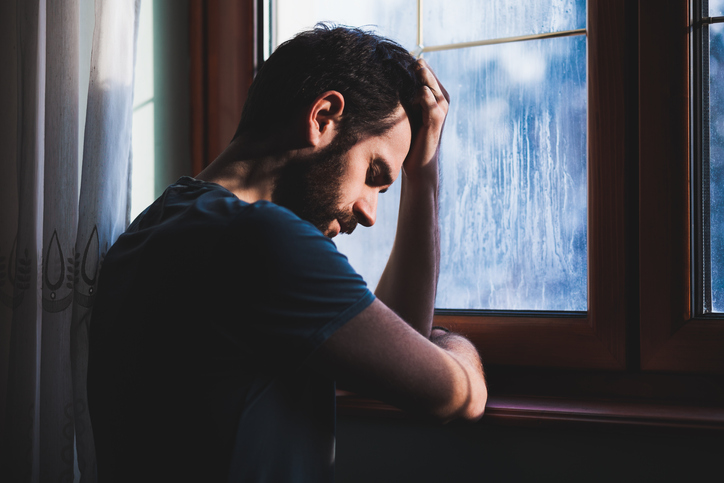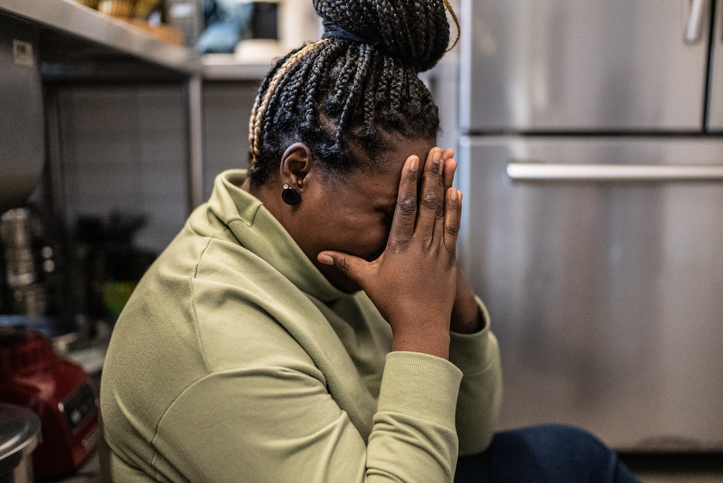If you’ve ever felt that something from your past is affecting your present but couldn’t quite put your finger on it, this article might shed some light. Here are several signs that your childhood may have been more traumatic than you’ve realized. Remember, recognizing these signs is not about placing blame, but about understanding yourself better and opening the door to healing.
1. You feel disconnected from yourself

Do you sometimes feel like you’re watching your life from outside your body, or like what’s going on around you isn’t quite real? These experiences of dissociation can be a coping mechanism developed in response to overwhelming childhood experiences. While it can protect you in the moment, chronic dissociation can get in the way of your life and relationships.
2. You always feel on edge

If you’re always waiting for the other shoe to drop, even in a calm situation, that’s a red flag. This heightened state of alertness is a common response to childhood trauma. Your nervous system learned to stay on high alert as a survival mechanism, and it might not have learned how to relax fully. This can lead to exhaustion, irritability, and difficulty concentrating.
3. You’re attracted to chaotic or abusive relationships

If you find yourself repeatedly drawn to partners or friends who are unstable, abusive, or narcissistic, then that’s a pattern that stems from childhood experiences that normalized chaos or abuse. What feels familiar (even if it’s harmful) can be more comfortable than what’s actually healthy but unfamiliar. Breaking this cycle requires recognizing it and learning what healthy relationships look like.
4. You have issues with substance abuse or addictive behaviors

Using substances or engaging in addictive behaviors (like gambling, excessive shopping, or workaholism) to cope with difficult emotions can be a sign of unresolved childhood trauma. These behaviors often serve as ways to numb pain, escape reality, or feel a sense of control that may not have gotten in childhood.
5. You’re excessively self-critical

While striving for excellence can be positive, excessive perfectionism or harsh self-criticism might be rooted in childhood trauma. If you grew up in an environment where love or approval was conditional on performance, you might have internalized the belief that you’re only worthy if you’re perfect. This can lead to chronic stress, burnout, and never feeling good enough, no matter what you achieve.
6. You have a hard time experiencing joy or pleasure

If you find yourself waiting for something to go wrong when things are good, it might be tied to childhood trauma. This phenomenon, sometimes called “foreboding joy,” can be a protective mechanism developed in unpredictable or threatening environments. Not only can it rob you of fully experiencing life’s positives but it can also create stress and unhappiness.
7. You have a huge fear of abandonment or being suffocated

Do you panic at the thought of being alone, or conversely, feel suffocated in close relationships? These seemingly opposite fears often come from childhood attachment trauma. They can lead to push-pull dynamics in relationships, where you crave closeness but also find it super threatening. It’s not fun.
8. You deal with feelings of emptiness

Struggling to find meaning in life can be tied to childhood trauma. If your early experiences didn’t provide a secure foundation for developing a sense of self and purpose, you might feel lost or unfulfilled as an adult. This can manifest as difficulty setting goals, making decisions about your life direction, or feeling passionate about anything.
9. You get weird with transitions or change

If you find changes, even positive ones, extremely stressful, it could be related to childhood trauma. Growing up in an unpredictable environment can make any change feel threatening. You might cling to routines or resist new experiences as a way of maintaining a sense of control and safety.
10. You can’t get away from the shame

According to Psychology Today, shame is a common result of childhood trauma. Unlike guilt, which is about feeling bad for something you’ve done, shame is about feeling bad for who you are. If you carry a persistent sense of being unworthy, it might be rooted in childhood experiences that led you to internalize negative beliefs about yourself.
11. You don’t necessarily trust yourself

If you frequently doubt your own memories, feelings, or perceptions of reality, it could be a sign of childhood gaslighting or emotional neglect. Children who grow up in environments where their experiences are consistently denied or minimized often struggle to trust their own judgment as adults. This can make decision-making difficult and leave you vulnerable to manipulation in relationships.
12. You have a really hard time with relationships

Childhood trauma can significantly impact our ability to trust and be vulnerable with others. You might find yourself pushing people away when they get too close, or you might cling too tightly out of fear of abandonment. These patterns often stem from early experiences where trust was broken or where close relationships were unstable or threatening.
13. You’re not great at regulating emotions

You might experience mood swings, explosive anger, or feelings of emptiness. On the flip side, you might feel emotionally numb or disconnected. These experiences often result from growing up in an environment where it wasn’t safe to express emotions or where your emotional needs were consistently ignored or punished.
14. You have tons of unexplained anxiety or fear

This might manifest as a general sense of unease, specific phobias, or panic attacks that seem to come out of nowhere. Your nervous system may be stuck in a state of hypervigilance, always on the lookout for potential threats, even in safe environments.
15. It’s hard for you to take care of yourself

If you grew up in an environment where your needs were consistently ignored or where self-sacrifice was expected, you might have internalized the belief that your needs don’t matter. Learning to prioritize self-care can feel foreign or even selfish, but it’s crucial for healing and well-being.
16. You have a ton of health issues

According to Bessel van der Kolk MD, our bodies keep score of our experiences, and chronic pain, digestive issues, autoimmune disorders, and other health problems with no clear medical cause might be your body’s way of expressing unresolved trauma. The constant stress of a traumatic childhood can dysregulate the nervous system and immune response, leading to a variety of health issues later in life.








